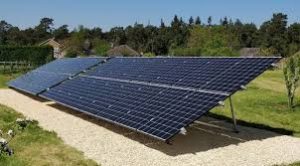The increasing urgency of transitioning to renewable energy sources has prompted many homeowners and businesses in Pittsburgh to explore solar energy as a sustainable and cost-effective solution. While rooftop solar panels have traditionally been the most common method of solar adoption, ground-mounted solar systems are emerging as a compelling alternative that offers distinct advantages. For property owners in Pittsburgh, switching to ground-mounted solar presents several critical benefits that address both the city’s unique environmental conditions and the practical limitations often associated with rooftop installations.

One of the primary reasons to consider ground-mounted solar in Pittsburgh is the flexibility it offers in system design and placement. Unlike rooftop panels that are constrained by the building’s orientation, slope, and available surface area, ground-mounted arrays can be optimally positioned at the ideal tilt and azimuth to capture maximum sunlight throughout the year. This is particularly advantageous in Pittsburgh, where varying roof angles, architectural styles, and the prevalence of shading from mature trees often hinder the effectiveness of rooftop solar installations. Ground-mounted systems eliminate these obstacles by allowing precise placement in open yard spaces, fields, or underutilized land areas, ensuring greater energy production efficiency.
Another significant advantage of ground-mounted solar systems is their accessibility for maintenance and future scalability. In a climate like Pittsburgh’s, where snowfall, rain, and seasonal debris are common, routine cleaning and inspection are essential to maintaining optimal system performance. Ground-mounted arrays provide easy ground-level access, reducing the complexity and safety risks associated with rooftop maintenance activities. Additionally, for homeowners and businesses anticipating future energy needs, ground-mounted systems offer the flexibility to expand the array without being limited by the structural capacity or size of a roof. This makes it a future-proof solution for those seeking to increase their energy independence over time.
Pittsburgh’s geographical and climatic characteristics further enhance the practicality of ground-mounted solar. The region’s frequent overcast skies and shorter daylight hours during winter necessitate systems that can be adjusted for maximum sun exposure. Ground-mounted installations can be designed with adjustable tilt angles or tracking systems that follow the sun’s path, thereby optimizing energy capture even in less-than-ideal weather conditions. This adaptability results in higher overall energy yields compared to fixed rooftop systems, which are often locked into suboptimal orientations.
Economically, switching to ground-mounted solar can also be a strategic investment. While the initial solar panel installation costs may be higher due to the need for racking structures and potential land preparation, the long-term financial returns often justify the upfront expenses. Federal and state-level incentives, including the Investment Tax Credit (ITC) and Pennsylvania’s Solar Renewable Energy Certificates (SRECs), significantly reduce the net cost of installation. Furthermore, Pittsburgh’s net metering policies allow system owners to receive credits for excess electricity fed back into the grid, which helps offset energy bills and improves the return on investment over time.
Environmental and community considerations also play a pivotal role in the case for switching to ground-mounted solar. Utilizing ground space for solar generation supports the city’s broader sustainability goals by reducing dependence on fossil fuels and lowering greenhouse gas emissions. Innovative applications, such as agrivoltaics—where solar panels are combined with agricultural activities—demonstrate how ground-mounted systems can promote dual land use, benefiting both energy production and local food systems. This aligns with Pittsburgh’s vision of integrating clean energy solutions within its urban and suburban landscapes to create resilient and environmentally conscious communities.
In conclusion, the decision to switch to ground-mounted solar in Pittsburgh is supported by a combination of practical, economic, and environmental factors. The adaptability in design, ease of maintenance, potential for higher energy output, and long-term financial benefits position ground-mounted systems as a superior alternative for many property owners. As Pittsburgh continues to evolve as a leader in sustainable urban development, ground-mounted solar installations will play a critical role in expanding the city’s renewable energy infrastructure and fostering a greener, more resilient future.